Imagine you’ve been feeling overwhelmed lately—everyday stress is piling up, and your typical coping strategies aren’t helping as much as they used to. You’ve considered therapy, but the idea of long-term commitment and deep emotional dives might seem daunting. The truth is, therapy isn’t a one-size-fits-all solution, nor does it always require months or years to make a meaningful impact.
Many people today are finding relief through brief psychotherapy, a targeted, shorter-term alternative designed to address immediate issues effectively. But how does it truly compare to traditional therapy, and which approach best matches your specific needs? Let’s take an honest look at these therapeutic options and help you determine the best path forward.
What Exactly Is Brief Psychotherapy?
Brief psychotherapy is a focused therapy designed to produce meaningful results within a limited number of sessions—usually between 6 and 20. It’s ideal for addressing clearly defined issues such as anxiety, work-related stress, or relationship conflicts. Because of its structure, brief psychotherapy begins with setting precise, achievable goals. The therapeutic sessions focus on practical strategies, effective solutions, and immediate behavioral changes.
This method usually integrates various evidence-based approaches like Cognitive Behavioral Therapy (CBT), Motivational Interviewing (MI), and Interpersonal Therapy (IPT), each proven effective in managing conditions such as anxiety, mild depression, and relationship conflicts. By addressing specific, immediate issues, brief psychotherapy empowers individuals to quickly regain control and develop strong coping mechanisms.
Understanding Traditional Therapy
On the other hand, traditional therapy typically involves open-ended sessions conducted regularly over extended periods, often several months or even years. This approach allows for deeper emotional exploration and gradual resolution of complex, deep-seated issues. It provides the opportunity to thoroughly examine past experiences, patterns of behavior, and long-standing emotional wounds, creating a supportive and reflective therapeutic relationship.
Traditional therapy is particularly beneficial for people dealing with persistent issues, complex emotional trauma, or chronic mental health conditions. Through sustained engagement, individuals can achieve profound self-awareness and significant personal growth, although results usually take longer.
Key Differences Between Brief Psychotherapy and Traditional Therapy
When choosing between these two methods, consider their fundamental differences:
Duration and Focus
Brief psychotherapy sets clear goals right from the outset, focusing on immediate and achievable outcomes. The shorter duration demands active participation, emphasizing direct problem-solving approaches. Conversely, traditional therapy prioritizes ongoing emotional exploration without strict session limits, making room for extensive discussion and gradual healing.
Treatment Scope and Techniques
Brief psychotherapy employs structured, evidence-based approaches like Cognitive Behavioral Therapy (CBT), which emphasizes changing negative thought patterns quickly. Traditional therapy is less structured, focusing instead on conversational methods and exploring the underlying causes of emotional distress.
Who Should Consider Brief Psychotherapy?
Brief psychotherapy is excellent for those facing specific, immediate concerns requiring practical solutions. It’s particularly suitable if you prefer short-term, targeted intervention over long-term emotional exploration. Individuals facing temporary life disruptions, relationship difficulties, or mild-to-moderate anxiety and depression often find this method highly effective.
For instance, if you recently faced a challenging life event like job loss or a breakup, brief psychotherapy can provide swift relief, helping you develop immediate strategies to regain emotional stability.
When Traditional Therapy May Be the Right Fit
Traditional therapy may be more appropriate if your concerns involve deep-rooted psychological issues, significant past trauma, or if you’ve tried shorter therapies without long-term success. Those struggling with severe depression, personality disorders, PTSD, or chronic conditions often benefit immensely from this patient, long-term approach.
If your journey toward emotional health involves unraveling complex, ongoing issues or requires sustained therapeutic support, traditional therapy may be the most effective option.
Why Is Brief Psychotherapy Often Integrated into Psychiatric Treatment?
In psychiatric care, brief psychotherapy frequently complements medication management. Psychiatrists integrate short-term therapy methods to achieve faster symptom relief, providing patients with practical coping strategies alongside medicinal treatment. This combined approach is particularly efficient because it offers immediate support while simultaneously addressing physiological symptoms.
Conditions such as bipolar disorder, ADHD, insomnia, or PTSD benefit significantly from this dual strategy. For example, medication might stabilize mood swings associated with bipolar disorder, while brief psychotherapy sessions offer actionable tools for managing daily stressors, ensuring comprehensive mental health support.
Evidence-Based Methods in Brief Psychotherapy
Brief psychotherapy primarily utilizes therapeutic methods with substantial scientific backing:
- Cognitive Behavioral Therapy (CBT): Proven to significantly reduce anxiety and depression through targeted behavioral and thought interventions.
- Motivational Interviewing (MI): Effective in addressing motivational challenges, habit changes, and self-destructive behaviors.
- Interpersonal Therapy (IPT): Highly beneficial in managing relationship difficulties by enhancing communication and emotional resilience.
These evidence-based therapies are highly respected for their ability to foster rapid improvements, often allowing individuals to experience significant relief within just a few sessions.
Making the Best Choice for Your Mental Health
When deciding between brief psychotherapy and traditional therapy, first consider your unique mental health needs, personal goals, and lifestyle preferences. Consider the issues you’re facing: Are they recent, well-defined, or long-standing and complex? Are you looking for quick solutions or willing to engage in more extended exploratory conversations?
Consider consulting with a mental health professional who can help you clearly assess your needs, explain the benefits of each therapy style, and guide you toward the most suitable choice.
How Breath of Life Mental Health and Wellness Can Help
At Breath of Life Mental Health and Wellness in Greenville, NC, we believe in personalized psychiatric care explicitly tailored to your mental health needs. Our team of dedicated professionals integrates brief psychotherapy with comprehensive psychiatric evaluations and medication management, ensuring you receive the most effective and efficient care possible.
If you’re interested in exploring brief psychotherapy as part of your mental health journey, or if you need guidance to choose the best therapy method for your specific circumstances, we’re here to help. Contact us today and take your first step towards better emotional health and a brighter, healthier future.



